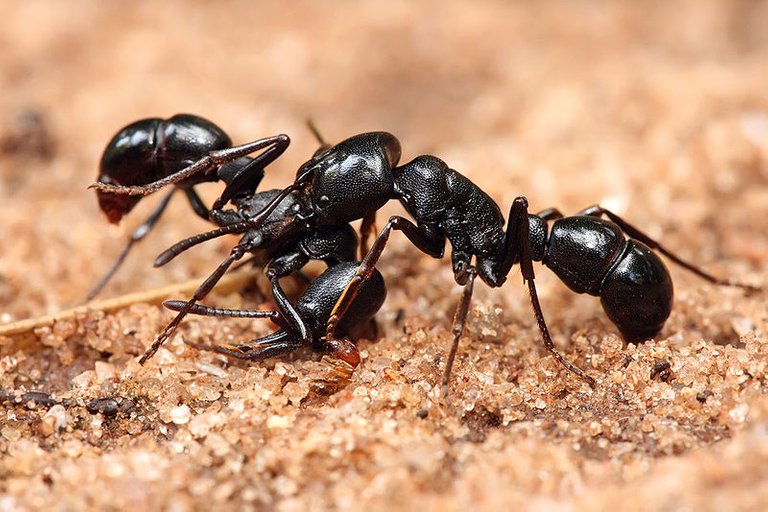superhuman strength .
Ants are ridiculously strong. They have the ability to carry between 10 and 50 times their own body weight! The amount an ant can carry depends on the species. The Asian weaver ant, for example, can lift 100 times its own mass.
This amazing strength is a result of their small size. The Arizona State University reports that because of their small size, ants’ muscles have a greater cross-sectional area relative to their body size compared to larger animals. This means they can produce more force.They don’t have lungs.
Due to their small size, ants don’t have the room to accommodate a complex respiratory system such as ours. Instead, they have their own ways of respiration to help transport oxygen around their bodies.
Ants breathe in oxygen through spiracles which are a series of holes located on the sides of their bodies. The spiracles are connected through a network of tubes which help distribute the oxygen to almost every cell in their body.
An ant’s movement helps the oxygen to circulate through the tubes, with the released carbon dioxide exiting through said tubes as well.They don't have ears.
Unlike other pest , ants don’t have ears. But they are not deaf.
Ants use vibrations to hear, using them when foraging for food or as an alarm signal. Ants use the vibrations in the ground to hear by picking them up in the subgenual organ which is located below the knee.There are a lot of ants in the world
It is estimated that there are around 1 million ants for every 1 human in the world!
Ants have pretty much conquered the entire globe. With the exception of Antarctica, the Arctic, and a handful of islands, there is at least one native species of ant found on every continent.
Sexual spices.
Rather than going down the traditional route of reproduction, some Amazonian ants have taken to reproduce via cloning. It is reported that the queen ants copy themselves to genetically produce daughters, resulting in a colony with no male ants.They are farmers
Just like we raise cows, sheep,chicken, and fish in order to obtain a food source, ants will do the same with other insects. The most common occurrence of this is with aphids. Ants will protect aphids from natural predators, and shelter them in their nests from heavy rain showers in order to gain a constant supply of honeydew.They have two stomachs
Ants have two stomachs. One of their stomachs is for holding food for their own consumption, and the second one is to hold food to be shared with other ants.
- Ants can swim.
Well, not all ants can swim, it depends on the species. They haven’t mastered the butterfly or breaststroke, yet, but they do have the ability to survive in water by using their own version of the doggy paddle, and can also float for long periods of time.
To put it simply, ants are amazing survivors. Not only can they hold their breath underwater for long periods of time, but they will also build lifeboats to survive floods. It can be especially dangerous when fire ants do this.
- They
 are slave-makers
are slave-makers
Some species of ant, such as the Polyergus lucidus are known as slave-making ants. They invade neighboring ant colonies, capturing its inhabitants and forcing them to work for them. This process is known as ‘slave raiding’.
Slave-making ants are specialized to parasite a single species or a group of related species which are often close relatives to them. The captured ants will work as if they were in their own colony, while the slave-making workers will only concentrate on replenishing their labor force.
Slave-making ants come in two formats: permanent social parasites and facultative slave-makers. Permanent social parasites rely on the enslaved ants throughout their lives whilst facultative slave-makers do not.
- Ants are as old as dinosaurs
A study from Harvard and Florida State Universities discovered that ants first rose during the Cretaceous period around 130 million years ago! They have survived the Cretaceous-Tertiary (K/T extinction) that killed the dinosaurs as well as the ice age.
Hi! I am a robot. I just upvoted you! I found similar content that readers might be interested in:
https://www.westernexterminator.com/ants/10-interesting-facts-ants/